In Conversation is a feature in which the senior staff talk about a record we’ve been listening to. Not exactly a review, it’s pretty much exactly what it says on the tin: two music nerds having a conversation about an album with all the tangential nonsense, philosophical wanking, and hopefully insightful commentary that implies. This time we’re digging into the fourth full-length from one of dark electronic’s most galvanizing frontmen: a record which is sure to turn heads for an altogether new reason…
Aesthetic Perfection
‘Til Death
Metropolis
Alex: Okay, cards on the table: I kind of expect that you [Bruce] aren’t really gonna be into this album. Mostly because I don’t recall you being wild about any of the singles, which for better or worse serve as a pretty good indicator of what Daniel Graves is going for on the new Aesthetic Perfection record. Graves has been totally up front about changing his project’s sound up on this release, and he wasn’t blowing smoke; this is a big step in a very different direction. Where his old side-project Necessary Response was an outlet for less aggressive material while sticking to a “scene” milieu, the new incarnation of AP is treading a more accessible, pop-influenced path.
For my part, I find myself enjoying it quite a bit. Graves has always had a knack for a sticky hook, and it certainly sounds to me like he’s stripped a lot of elements out of his sound, simplifying the structure of his songs to let the choruses and melodies be the focus throughout. I’m not too fussed about the new stuff being less aggro as long as I can hum the tunes, and once I found myself acclimated to the climate of ‘Til Death, I found myself listening to it quite a bit. How’s the record striking you on the first couple spins?
Bruce: If I’m remembering correctly, I thought “The Dark Half” was just peachy but really wasn’t feeling “Big Bad Wolf”, but regardless, your point about hummability is well made. We’re talking about a very different incarnation of AP and a new set of standards of judgment should be selected. Are the songs catchy? Do they “swing”? Will they play in Peoria?
On the whole, yes. “Antibody” is a pretty fair keystone to the whole affair, with a simple synth line pinging and detuning between drums and hot-swapping the front of stage with Daniel’s vocals. The almost comically retro “Lights Out (Ready to Go)” has Trio’s “Da Da Da” 808 intro switch over to a squelchy synth-rock body which almost sent me diving for my dusty Nightbreed comps for reference. These and a handful of other tracks on ‘Til Death have an immediacy which can’t be denied. That’s aided in no small part by that stripped-down instrumentation which you point out: Graves is pushing all the chips onto memorable choruses.
With that in mind, and in the interests of finding a suitable critical framework, here’s a super-wanky question (the likes of which this article format was designed for): should we be listening to ‘Til Death as dark pop music or poppy dark music? A pedantic distinction, perhaps, but one which might help the discussion somewhat.
Alex: I think it’s an important distinction, at least insofar as setting expectations for it. Graves has spoken numerous times about his genuine love of a lot of Top 40 (in our interview with him he discussed his unabashed appreciation of Ke$ha), but it’s important to make a distinction between what he’s doing here and an effort to replicate mainstream hits. It’s worth noting that every song you hear on mainstream pop radio has more often than not had a fortune spent on songwriting, production and mastering. Attempting to replicate the efforts of an army of vocal coaches, top-of-their-game engineers and world-class producers as a one-man act is pretty much gonna be a failure from the jump. Graves gets that I think, and has instead focused on the economy of good pop, shoehorning it into a style not totally removed for what he’s already known for. I’d say what he’s doing is closer to the efforts of say, The Birthday Massacre or Ashbury Heights than it is to something like Katy Perry’s “Dark Horse”.
I’m especially taken with “Death Rattle”. As a song it depends mostly on interplay between a squelchy bassline and Graves’ vocals, when he leans into the chorus the song comes to life. I don’t think it would have made for a good single leading up to the release (going into it having been primed with “Antibody” and “Big Bad Wolf” helped me appreciate its charms I think), but in the context of the album it’s certainly my favourite: simple, and compulsively listenable.
Aside from that one, I’m feeling the bouncy “Oh Gloria”, and closing track “Lovesick” where Graves goes full synth-ballad. On so much of ‘Til Death he’s switching between clean vocals and yelling (and even a bit of vocoder on “The New Black”), so when he lays back into a more relaxed and natural sounding croon his strength as a vocalist is really apparent. On that song he gets across lots of emotion in what sounds like a very genuine and less performative way. Any thoughts on the direction of the vocals?
Bruce: Yeah, I admit I was specifically angling that last question with an eye towards getting The Birthday Massacre into the conversation. I can hear them all over “Death Rattle”, and to a lesser extent on “Showtime” and “The New Black”. The list of acts from Our Thing who’ve had any success drawing in fans from outside of it with forays towards pop is short indeed, and The Birthday Massacre have certainly been the most successful in recent memory. Whether conscious or not, if a little bit of their ability to pin tinkling melodies to chuggy beats was picked up by Graves on his recent tour with TBM, it certainly wouldn’t hinder ‘Til Death.
Anyway, vocals: yeah, the decision to go with a mostly clean, un-distorted, non-screaming approach works, both in terms of the sound of ‘Til Death and in terms of where Graves is at in his career as a frontman. Like we said the night we first caught him live, Graves has charisma coming out the wazoo, and lending AP records a titch more of that through a more intimate vocal style is win-win as far as I’m concerned. Hell, if I were drunk (which I’m not), I might even suggest that Graves’ crooning often sounds like a cross between Marc Almond and Keith Sweat on this record. Make of that what you will.
The odd track which combines the raw screaming of All Beauty Destroyed and earlier processing, like the aforementioned “The New Black”, does help to break things up, though. I think I’ve landed on “The New Black” as my favourite ‘Til Death tune. It mixes up all three vocal styles, uses a half-time sorta-drop on the chorus to create some juxtaposition with the bouncy verses, and like “Pale”, that other fantastic penultimate AP track, uses vocoder to build up tension. Great stuff that shows Graves can keep his ear for songcraft even when consciously broaching distinctly new sounds.
So, riddle me this: between Close To Human, A Violent Emotion, All Beauty Destroyed, and now ‘Til Death, we have four Aesthetic Perfection albums, each with radically different, um, aesthetics. What connects them for you, and what do you think ‘Til Death is adding to the history of AP apart from its big pop moves?
Alex: Well, it’s all centered around Graves innit? As a frontman for what is essentially a one-man band his personality as a performer and songwriter is really apparent, even as the mode of the music changes between releases. Just as an excercise I just listened to the highlights from A Violent Emotion (it’s the one that really broke him to a wider audience and is maybe the one most folks are most familiar with), and even on its most aggressively delivered tracks you can hear his personality coming through loud and clear. One of his big strengths has been his ability to come across as a distinct personality, and love or hate how he comes across online and on record, he’s distinct and difficult to ignore.
I’m gonna say that regardless of how people feel about ‘Til Death, it’s at least an important album for Daniel Graves in terms of separating himself philosophically from a “scene” that he seems disillusioned with. I remember when that b-side “FVCK INDUSTRIAL” came out being like “Gee, kind of weird that someone on a primarily industrial label and who plays to industrial crowds would make a point of saying that”, but I think he at least followed through on its (admittedly pretty jokey) premise: this is Aesthetic Perfection branching out beyond the boundaries of what a lot of folks expect from the project, perhaps never to return. It’s on some money-where-your-mouth-is, if he had made a fuss about being bored with industrial and then delivered another album in the vein of the last two I’d have been disappointed. You?
Bruce: Hah. Yeah, that would’ve been pretty tacky post-“FVCK INDUSTRIAL”. This is definitely some walk-the-walk stuff as far as the pop line goes. I imagine he might piss off some fans who’ve mistaken the project’s more aggressive moments (“The Great Depression”) for its neutral state, but hey, nothing ventured and all that. Even if I didn’t enjoy ‘Til Death (which I do) I’d still give Graves credit for branching out instead of punching the clock once a year with a same-old, same-old LP. So often we hear about artists wanting to break out of the molds they’ve been cast in, and subsequently taking off in some wacky experimental direction. Regardless of the outcome, it’s difficult for hacks like us to fault them as the resultant oddities can often inure them to criticism (“hey, maybe this didn’t work, but at least it’s credible or authentic“). By switching things up and running straight for pop, I can’t help but wonder if Graves is putting more at stake. Unlike “experimental” failures, failures in pop are apparent from the get go, and earn their creators no points for effort. ‘Til Death is certainly no failure, and I’ll be the first to doff my cap to a gamble that has paid off well.

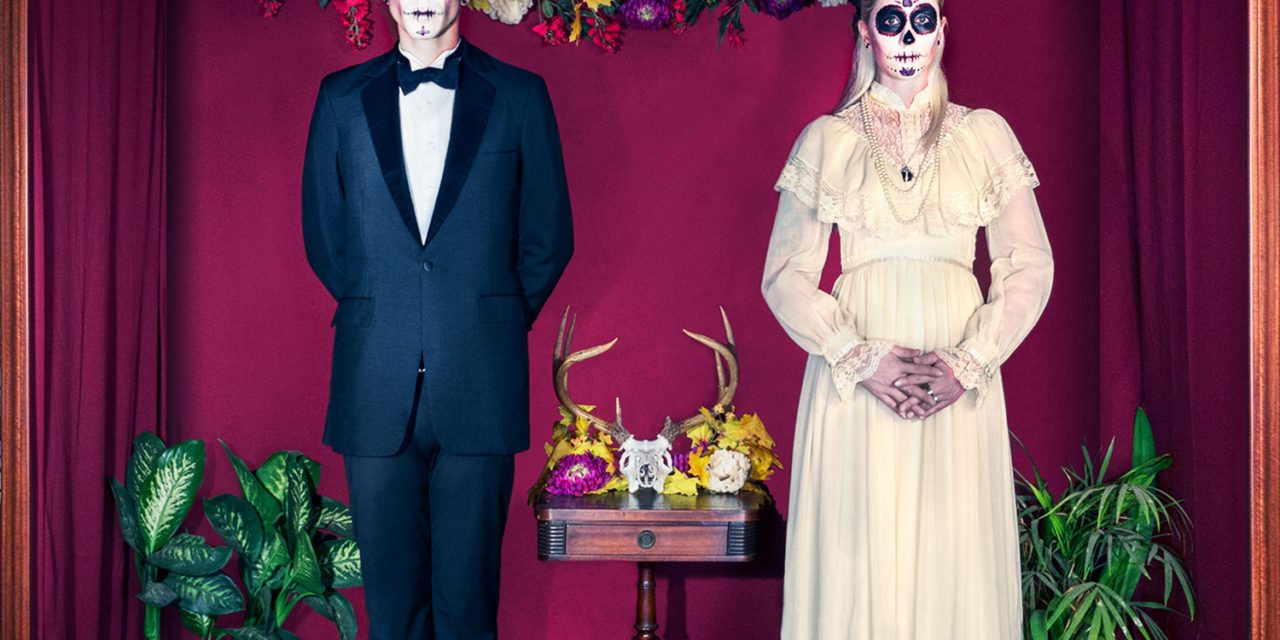
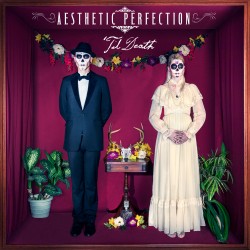
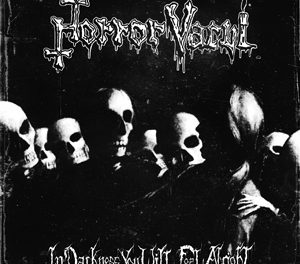
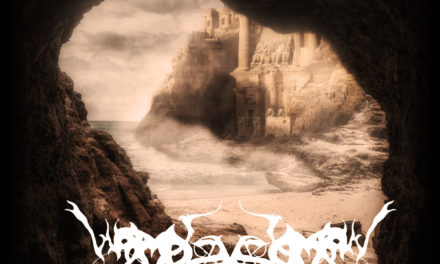
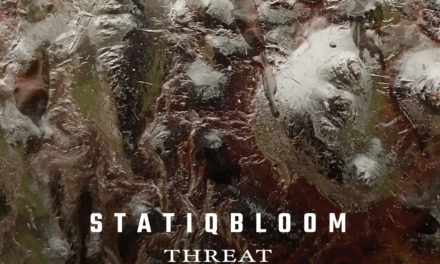
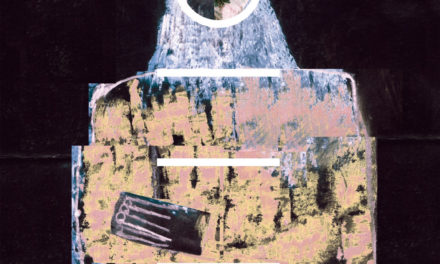
Am I the only one who sees substantial overlap between “those who complain about the new direction AP is going in” and “those who complain about lack of creativity in the scene”?
Hah, possibly. Like I was intimating in the discussion of “experimental” breaks with tradition, often what we mean when we say “there’s nothing new and interesting” is “there’s nothing new -that I like-“. If someone told me that the poppy hooks on “‘Til Death” made it a non-starter for them, then I’d be fine to let that be that, but there’s no doubt in my mind that this is markedly different from (and drawing upon different sources than) 98% of modern clubdustrial (or whatever you want to call it).
Great writeup, I’m enjoying the new record so far. I met Graves several years ago at the Red Room in Vancouver when he played with (if I remember correctly) Imperative Reaction and SITD. Really nice guy.
Yes indeed! We had to take off as SITD were winding down to catch A Place To Bury Strangers Across town, but the one key thing we took from that gig was that there was a brand-new top-notch frontman in the game.
On the subject of “dark pop music or poppy dark music,” it’s interesting that you have no doubt that the adjective “dark” belongs *somewhere* in your description of this album. To take the conversation a few notches wankier, what makes music “dark,” and can you think of any artists or songs that you’d put right on the line between “dark” and “not dark”?
I’m specifically reminded of the end of _Assimilate: A Critical History of Industrial Music_ where Alexander Reed wrote “industrial noise has come to *signify* transgression instead of actually transgressing” (p. 307)… has a similar thing happened to the concept “dark”? Is that the difference between dark pop music (dark-signifying) and poppy dark music (actually dark)? If so, I’d disagree with you and put AP in the former category. Abundant signified/aestheticized darkness, but a different experience from listening to something actually dark. I hope that’s not a misrepresentation of the intent behind it.
I know I’m hopelessly late to the party, but I have a question. I was intrigued by your statement: “Unlike “experimental” failures, failures in pop are apparent from the get go, and earn their creators no points for effort.” In pop, a record is supposed to be pretty easy to listen to, so it’s easy to judge a pop records “success” (some abstract quality) based on its commercial success, at least within the population that’s aware of it. How do you judge the success (not commercial success) of an experimental record? Or am I being too judgmental of the commercial aspects of aspects of music by even implying that exists a greater measure of a record’s success than its commercial success?
I guess I’ll fudge my words and say that an experimental release’s measures of success are as varied as the experiments it contains. It could be as straightforward as gaining a certain degree of cult influence (a la “Metal Machine Music”), providing a certain group of open-eared listeners with an experience they’d never had before (Throbbing Gristle) or subtly influencing sounds and structures in wide ranging genres for years to come (Can and plenty of other krautrock). It could also have intensely personal or theoretical goals: just providing a record of what an artist was interested in field testing at that particular moment, or marking the results of certain mathematical, musicological, or philosophical rules or deconstructions being applied. I’m also probably being a bit dismissive of pop by suggesting that if it’s not immediately appreciated in its own time it’s somehow a failure.